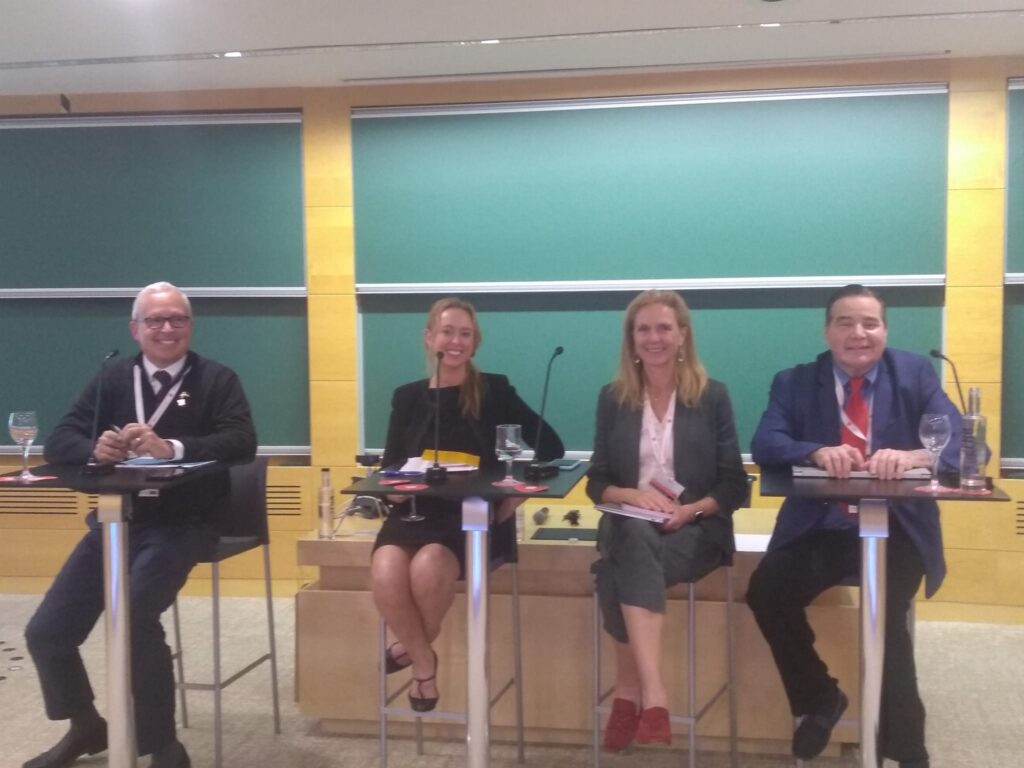
Human Right 2 Water teamed up with Public-Private Partnership experts from the International Sustainable Resilience Center and the World Association for PPPs to present a side event at the UNECE 6th Forum on People-first PPPs in Barcelona this first week of May. The topic was around digitalisation and resilience, and the discussion brought this topic to life for infrastructure development, where the digital environment is moving very fast, and PPPs need to stay competitive. Importantly, the link with sustainability and resilience was put to the front of the agenda, in keeping with the “People-first” theme of the conference.
A few highlights from the conversation include the point from David Baxter (PPP expert consultant) on the need for PPPs to move from an “economic returns” basis, to one that needs to compete for ESG funding (environmental – social-governance).
David Dodd (Founding President and CEO of ISRC) brought focus onto the need for “resilience” to climate and political events such that PPPs can stay in business for the long term.
Wearing her stakeholder engagement hat from the UNECE Pf-PPP evaluation tool, Amanda Loeffen (CEO of HR2W) reminded us of the importance of considering the wide range of stakeholders, including vulnerable and marginalised groups in development, and gave examples of how this more qualitative data can be expressed digitally, and monitored to accelerate achievement of the SDGs.
From the legal perspective, Tanya Dombkins introduced us to Smart Contracts, for systems that can improve contractual processes in a secure way using digitalisation and block chain technology.
The outcome of this event will be summarised in a short policy paper that will be shared in the next few days.
As an introduction, please review the outcome paper to give an insight into the event, and the following excerpt:
What do we mean by digitalisation?
Digitalisation has a vast array of different interpretations of the word. Essentially, it includes any process that collects data in a form that can be transparently or confidentially shared online. The examples include smart contracts that use block chain technology to secure confidentiality, a simple spreadsheet that tracks data, or sophisticated software tools that incorporate digital infrastructure and allow for the storing, categorising, analysing and treatment of large amounts of technical or financial data between systems. It allows for the collection and sharing of information in a common database that enables the higher performance of operators and the tracking and monitoring of information. There is little doubt that we are quickly crossing the digital frontier and operating in a new world of virtual reality and demands. PPP projects that do not adopt will be left behind.

